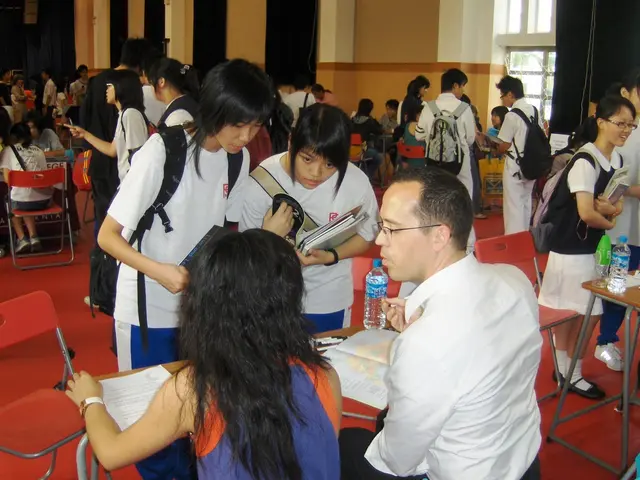Political groups exhibit contrasting reactions to apparently conclusive exit poll findings
With the dust settling in Seoul, the triumphant Democratic Party can be seen celebrating their victory in the presidential election. Exit polls indicated their candidate, Lee Jae-myung, was the one to clinch the coveted title. The conservative People Power Party, on the other hand, seems to have cashed in their chips as lawmakers scurried away from the parliament's ballot counting monitoring room, myriad concerns clouding their faces.
Deciphering the Landscape
Lee Jae-myung's incoming presidency presents a unique blend of challenges and opportunities. With a pragmatic foreign policy approach, he aspires to navigate the intricate Indo-Pacific region's complex security landscape, fortifying South Korea's geostrategic position while managing relations with neighbors like North Korea, China, and Russia.
However, domestically, his administration will have its work cut out for it, aiming to restore public confidence in the government, heal partisan divides, and deal with the lingering repercussions of former President Yoon Suk Yeol's tumultuous martial law declaration. Economic stabilization also looms large on the horizon, as the Korean economy grapples with political instability and external pressures.
The Path Ahead
Lee Jae-myung's presidency will be a delicate dance between pragmatism and progressive ideals. He has expressed unwavering support for the U.S.-South Korea alliance, knowing full well the importance of maintaining security and diplomatic cooperation. At the same time, there are concerns about potential shifts in this alliance, particularly if the U.S. reconsiders its security commitments or presses South Korea to adopt a more assertive stance against China.
Another daunting task for Lee's administration will be grappling with North Korea's nuclear arms buildup. The increasingly close relationship between North Korea, Russia, and China poses a significant security threat, leading a growing number of South Koreans to advocate for nuclear armament as a response.
Lastly, Lee has consciously shed his populist progressive image, opting for a more moderate appearance to appeal to undecided voters in the aftermath of Yoon's impeachment.
Treading the Political Tightrope
As Lee Jae-myung embarks on his new journey, he will need to strike a delicate balance between addressing these challenges and meeting the expectations of his supporters. If successful, he could solidify his legacy as a trailblazing leader, navigating the intricate labyrinth of domestic and international politics with finesse. Yet, should he falter, South Korea might find itself facing unprecedented challenges, with far-reaching implications for the region and beyond.
- Lee Jae-myung's interview revealed his plans to address the economic instability in South Korea, aiming for stabilization amidst political turbulence and external pressures.
- The South Korean political landscape is shaping up to be contentious, as the new president must navigate the complex terrain of international relations, particularly in war-and-conflicts areas such as the Indo-Pacific region and North Korea's nuclear arms buildup, while managing domestic issues like healing partisan divides and restoring public confidence.
- General news coverage has highlighted the intricate dance between politics and economy that Lee Jae-myung must perform during his presidency, as he strives to maintain alliances while managing internal issues, ultimately aiming to secure a legacy as a trailblazing leader.







